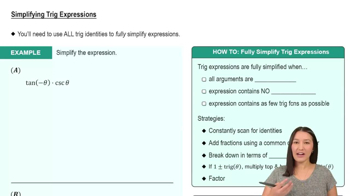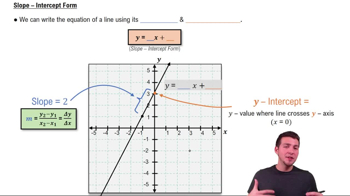Find the following limits or state that they do not exist. Assume a, b , c, and k are fixed real numbers.
lim x→3 −5x / √4x − 3
 Verified step by step guidance
Verified step by step guidance Verified video answer for a similar problem:
Verified video answer for a similar problem:



 5:21m
5:21mMaster Finding Limits by Direct Substitution with a bite sized video explanation from Patrick
Start learning